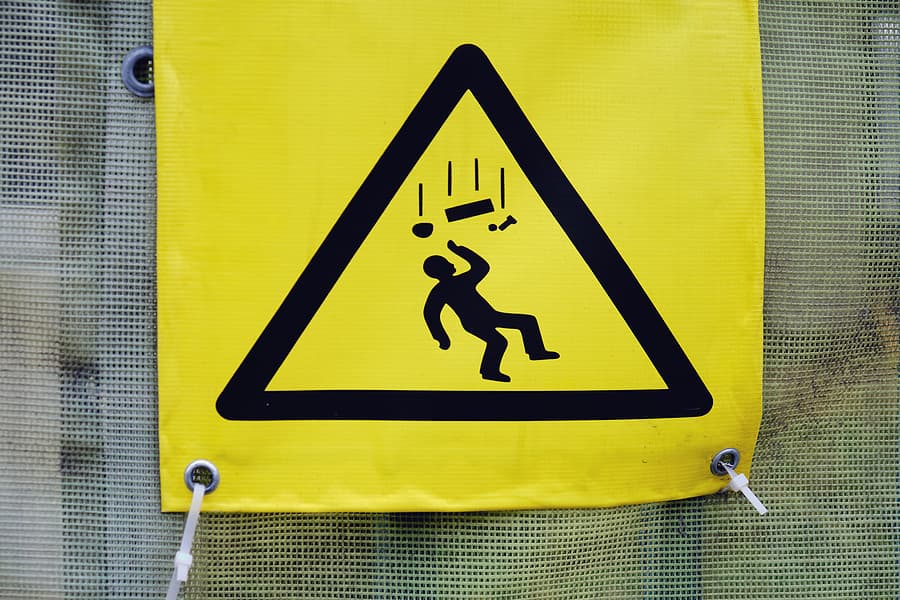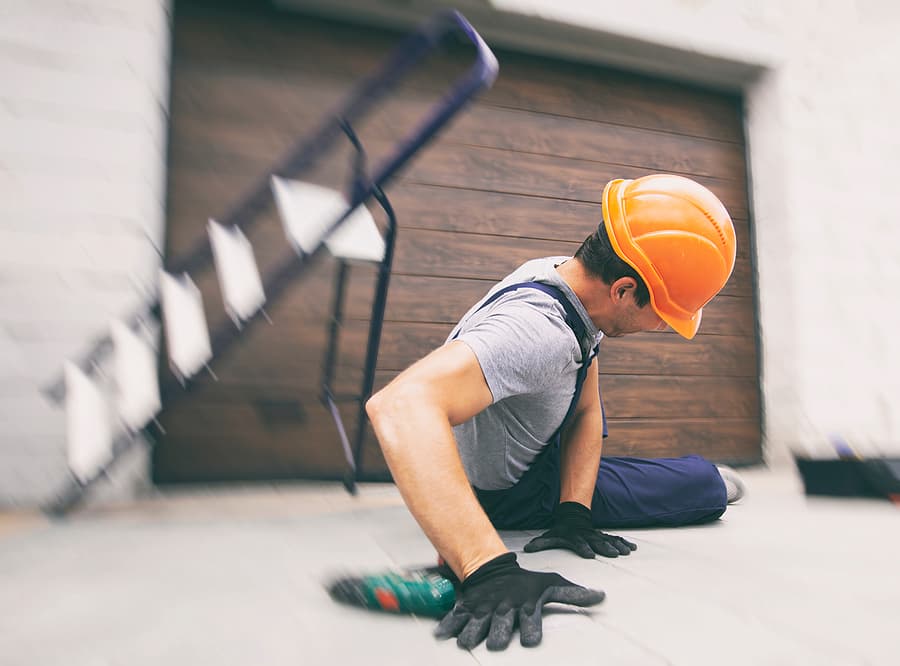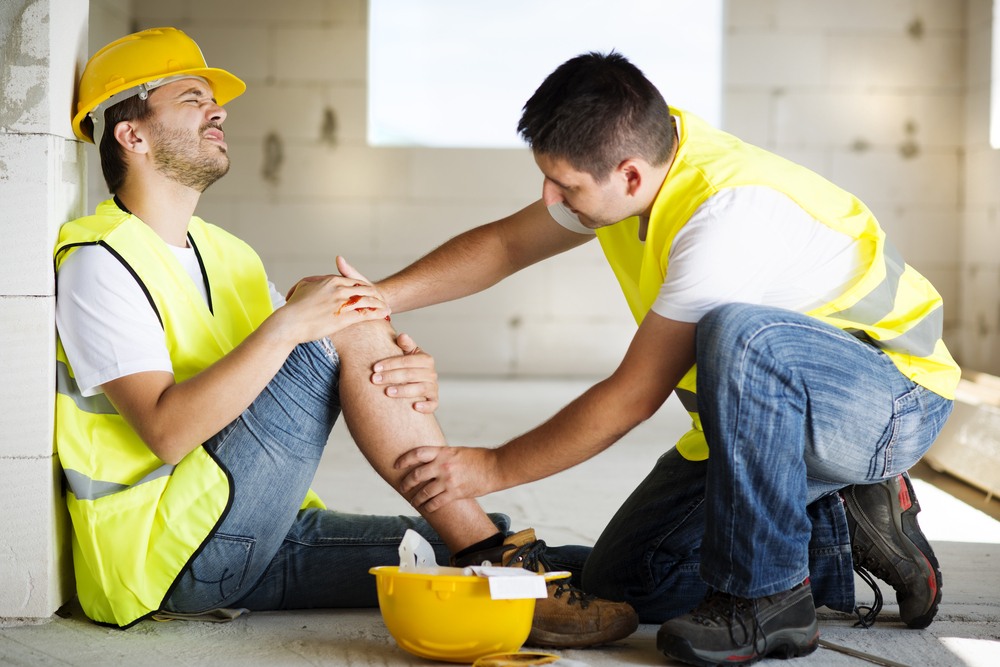If you were a bystander injured in a construction site accident, the person responsible for your injury pays for your losses. This could mean you should seek compensation from the construction company, a contractor, or a third party.
Construction sites are dangerous zones for more than just construction workers. While construction workers face hazards every day, they have equipment and training to help ensure their safety. By contrast, visitors and bystanders are unprepared for the dangers they may face on a construction site.
When a construction worker suffers injury on the job, they are typically covered by workers’ compensation. Bystanders, however, may have to file a personal injury claim with the help of a construction accident lawyer to seek the compensation they need.
Who Your Lawyer May Hold Liable for a Bystander Construction Accident?
Many construction sites can be found in spaces that are easily accessible to the public. A new hotel being constructed on the beach or renovations to a public library can put you in the center of a worksite. Many times, it’s unavoidable to cross paths with the heavy machinery or debris that are common at construction sites.
If you were injured as a passerby, you can file a personal injury lawsuit against the person or entity responsible for causing the accident or responsible for preventing harm to the public. Who that is depends on the circumstances of the construction site accident.
Your lawyer could hold liable party:
- A general contractor
- A subcontractor
- Property owner or land developer
- Management company
- Equipment or machinery manufacturer
- Third-party service providers
Liability is a complicated subject when you have the intersection of multiple parties, as is typical at a construction site. As a result, construction accident cases are often left to injury lawyers who have extensive knowledge and experience handling these types of cases.
How Can Bystanders Recover Compensation After a Construction Accident Injury?

Most of the ways you can recover compensation from a construction accident injury involve proving that negligence took place. In general, you would need to prove that the person or company who caused your accident failed to exercise reasonable care in performing their duties, whatever they were.
Some instances that may allow you to file a case include:
Premises Liability Construction Accidents
Sometimes property owners don’t take the precautions necessary to ensure their premises are safe for visitors or the public at large. If the property owner knew or should have known that dangerous or defective conditions were present, but failed to take steps to correct them, they are considered negligent. If those defective conditions led to your injury on the construction site, you can file a premises liability lawsuit.
Negligent Hiring or Retention of Construction Site Employees
If the property owner failed to perform the necessary background and licensing checks on a contractor before hiring them, the property owner could be on the hook for negligent hiring in certain circumstances.
Perhaps the contractor failed to ensure proper coverings were in place to prevent falling objects from hitting passersby, and you were hit by a wrench that fell. The contractor is negligent, but it’s later revealed the contractor no longer has a license and is known to cut corners on safety.
The property owner who hired them may be considered negligent as well. A dutiful owner would not have hired an unlicensed contractor with a questionable past. It is a similar situation when a contractor or property owner continues to allow someone they hired to remain on the job despite displaying clear signs of being unfit for the position.
Negligent Supervision on the Site
When a construction accident occurs due to inadequate supervision from those in charge, you could sue for negligent supervision. For example, suppose a construction site is being run by an absentee general contractor whose job it is to supervise the work that unlicensed laborers are completing. You may have a case under the theory of negligent supervision if your accident was caused by the unsupervised actions of a worker.
Product Liability Incidents
If your injuries were the result of a faulty or dangerous piece of equipment or machinery, you may have a product liability case against the manufacturer. For example, if the brakes on a brand-new forklift failed, causing the vehicle to plow across a parking lot as you were on your way to your car, the manufacturer would be responsible under strict liability laws for the damages you suffered.
How Do Bystanders Get Hurt on Construction Sites?
Any number of unsafe conditions could lead to a bystander being injured at a worksite.
Some of the ways passersby may end up injured include:
- Falling objects and debris
- Tripping hazards left out in the open
- Slipping hazards
- Construction vehicle accidents
- Forklift accidents (being struck, crushed, or trapped between a forklift and another object)
- Crane accidents (tipping over, striking, and/or crushing victims)
- Uncovered holes
- Missing or inadequate caution signs
- Missing guardrails leading to falls
- Toxic chemical exposure
- Gas leaks
- Fires and explosions
- Live wires and electrocution
The chances of bystanders suffering injury are decreased when construction companies take the required safety measures. Standards from the Occupational Safety and Health Administration (OSHA) and state laws share the goal of protecting both construction workers and bystanders from harm on construction sites.
Unfortunately, many construction companies and contractors flout the rules to save money and speed up the project. They may skip performing necessary worksite inspections, create unstable makeshift scaffolds prone to collapse, fail to set up fall protection systems, or provide insufficient training to construction workers on the proper operation of equipment or heavy machinery.
Injured Bystanders Have a Right To Recover Financial Compensation for Their Losses
If you were injured in a construction site accident, you are entitled to recover compensatory damages. These are both your economic and non-economic damages. As their names imply, economic damages refer to the sum of money you receive for financial losses and non-economic damages provide you with money for losses unrelated to finances.
Economic damages can make up for the income you lost while recovering from your injury. Meanwhile, your non-economic losses account for intangible damages, like pain and suffering.
By filing a personal injury lawsuit, you may be entitled to collect compensation for:
- Present and future medical expenses
- Physical rehabilitation
- Chiropractic care
- Lost income and benefits
- Lost future earning potential
- Scarring and disfigurement
- Bodily injury
- Emotional pain and suffering
- Diminished quality of life
When there is a fatal construction accident, a lawyer can assist the family of the decedent with a wrongful death case.
Certain surviving family members could collect damages for:
- Lost financial support
- Funeral and burial costs
- End-of-life care expenses
- Loss of services
- Loss of guidance
- Loss of protection
- Grief and other emotional distress
What Injuries Could a Bystander Suffer at a Construction Worksite?
Construction accident injuries that bystanders may suffer are not unlike those a construction worker may experience.
Common injuries include:
- Crushed or broken bones
- Sprains and strains
- Amputated limbs or digits
- Burns
- Illness due to toxic chemicals
- Head injuries
- Traumatic brain injuries
- Lacerations
- Bruises
- Spinal cord injury or paralysis
- Nerve damage
- Back injuries
Injuries from a construction accident can be serious or fatal. Some victims end up with a life-long condition. You may want to seek the help of a construction accident lawyer to help you build your case and ensure you are able to recover the money you need and deserve for your injuries. Your construction accident case should include present and future medical bills and other lifetime care expenses that arise from your accident.
You Can Hire a Lawyer To Help You Fight Your Construction Injury Case
Unfortunately, liable insurance companies and large corporations don’t often want to pay the money they owe to injury victims. They attempt to sidestep responsibility to avoid losing money by paying you.
Having a personal injury lawyer can benefit your case in numerous ways. A lawyer can help you prepare your case and take the stress of fighting a legal battle off your shoulders.
Your construction accident attorney can:
- Investigate your construction accident. A lawyer can conduct an investigation into the cause of your accident. They may look for any OSHA violations as well as violations of state laws or city ordinances that could have led to your injuries. Your attorney may also look into the general contractor and/or construction company’s history in addition to identifying the other potentially liable parties present on the construction site.
- Determine the value of your case. Finding out what your case is worth is crucial to filing your demand for compensation. Your demand for compensation should cover all your losses. An injury lawyer can gather the documentation of your financial losses and compile supporting evidence to substantiate your pain and suffering.
- Communicate with other parties. Your construction injury lawyer acts as an intermediary for you. They will manage communications with the insurance company, defending parties, and others involved in your case. They can also speak to doctors, police, and witnesses for you your behalf.
- Negotiate for a fair settlement. Your attorney will represent your interests in negotiations. If the insurance company presents lowball offers, your lawyer can reject them and counter with an appropriate settlement.
- File a lawsuit. Your attorney may try to negotiate a settlement for you at first. If negotiations are not satisfactory, you may need to file a lawsuit to get results. Alternatively, your lawyer may find it in your best interest to file suit before negotiations begin.
How to Build a Strong Case for Compensation?
As most construction accident cases from bystanders will include some type of negligence, it is crucial that your case provides solid evidence to show what happened. Your injury lawyer will investigate and gather proof to demonstrate negligence.
Building a case based on a theory of negligence includes proving four key facts:
- The liable party owed you a duty of care-If the liable party owed you a duty of care, they had a duty to ensure your safety or prevent harm to you. Construction companies and contractors generally have a responsibility to keep the public safe when building.
- The liable party breached their duty– They failed to prevent harm to you. Breach of duty is determined by looking at how another reasonable construction company or contractor would have operated in the same situation. For instance, a reasonable contractor would ensure a hole in the ground in front of the building was properly covered and roped off to prevent bystanders from stepping into it. Failure to act in a similar reasonable fashion would constitute negligence.
- Their negligence caused your construction accident-You must show that the liable party’s negligence caused your accident. In other words, if they had not acted or failed to act in the way they did, you would not have been injured.
- The construction accident left you with damages– As a result of the accident, you suffered bodily harm, mental anguish, or financial loss. Your losses must be compensable under the laws of your state, meaning they are things for which you can recover monetary compensation.
How Long Do I Have to File a Lawsuit for a Bystander Construction Accident?
The time you have to file a lawsuit varies depending on your state. The statute of limitations for personal injury cases generally gives you a few years to submit your case. However, certain exceptions may alter the statute of limitations deadline. Missing the deadline could mean losing your right to compensation altogether.
One way to find out how long you have to file your case is to seek the assistance of Long Island personal injury attorney. Many lawyers have experience working on construction cases and could explain what to expect throughout the legal process.








